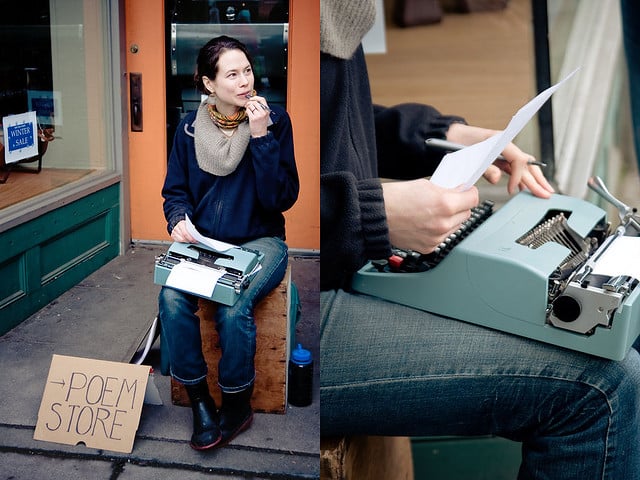
by Joe Bunting |
We’re here in Paris, and in honor of our trip, I’ve been reading A Moveable Feast, Ernest Hemingway’s memoir about living and writing in the city. In the book, he reveals what I think is one of the hardest parts about being a serious writer, a writer who cares deeply about the quality of his or her prose.
![Leaving [writing prompt]](https://thewritepractice.com/wp-content/uploads/2014/02/flight.jpg)
by Joe Bunting |
PRACTICE
Write about leaving (e.g. a young adult leaving for college, a wife leaving her abusive husband, a writer leaving for a great trip).
Write for fifteen minutes. When you’re finished, post your practice in the comments section. And if you post, please be sure to leave feedback for your fellow writers.

by Joe Bunting |
Years ago, when I imagined the lifestyle of a writer, I envisioned myself sauntering along the streets at dusk, sitting at cafés while stories unfolded magically in my imagination, the whole world seemingly at the tip of my pen.
Now that I’ve been writing for a while, I’ve realized that creative breakthroughs do happen, and when you experience them, they’re better even than how you imagined them to be. But they come at a terrible cost.

by Joe Bunting |
If you read the writing of the average MFA student, you’ll find perfectly composed, uniquely styled, completely boring stories. What’s the deal? Some of the best, most highly trained writers in the world are producing work few people outside academia wants to read.
Of course, I don’t mean to single out MFA programs. Too many writers—and I at times include myself in this group—are writing navel gazing stories that are perfectly written but lacking everything the average reader looks for in a story.
How do you write fresh, beautiful, experimental stories that are also interesting to read?

by Joe Bunting |
I love writing these posts for The Write Practice, and normally, when I sit down to write them, ideas come instantly and unbidden. Today was not one of those days. Today I had no idea what to write.

![Leaving [writing prompt]](https://thewritepractice.com/wp-content/uploads/2014/02/flight.jpg)





